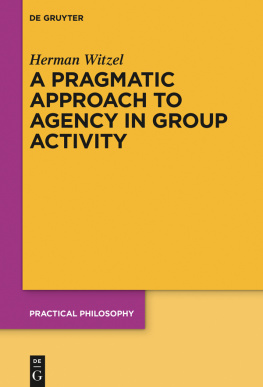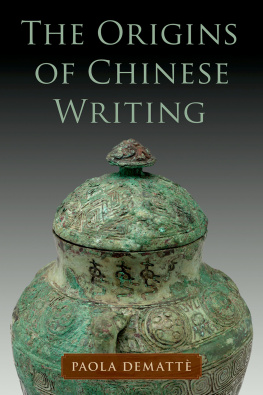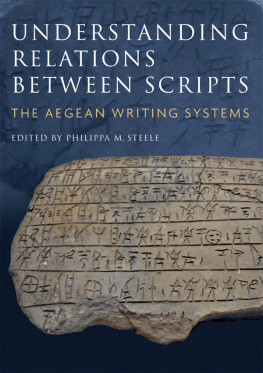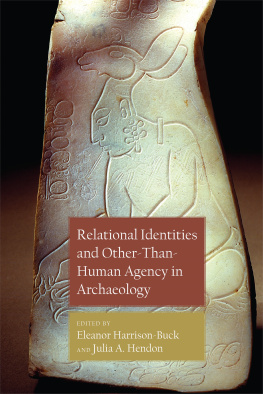AGENCY IN ANCIENT WRITING
AGENCY
IN ANCIENT WRITING
EDITED BY Joshua Englehardt
UNIVERSITY PRESS OF COLORADO
Boulder
2013 by University Press of Colorado
Published by University Press of Colorado
5589 Arapahoe Avenue, Suite 206C
Boulder, Colorado 80303
All rights reserved
Printed in the United States of America
 The University Press of Colorado is a proud member of the Association of American University Presses.
The University Press of Colorado is a proud member of the Association of American University Presses.
The University Press of Colorado is a cooperative publishing enterprise supported, in part, by Adams State University, Colorado State University, Fort Lewis College, Metropolitan State University of Denver, Regis University, University of Colorado, University of Northern Colorado, Utah State University, and Western State Colorado University.
 This paper meets the requirements of the ANSI/NISO Z39.48-1992 (Permanence of Paper).
This paper meets the requirements of the ANSI/NISO Z39.48-1992 (Permanence of Paper).
Agency in ancient writing / edited by Joshua Englehardt.
p. cm.
Includes bibliographical references and index.
ISBN 978-1-60732-199-6 (hardcover : alk. paper) ISBN 978-1-60732-209-2 (ebook)
1. WritingSocial aspectsCase studies. 2. Agent (Philosophy)Case studies. 3.
PaleographyCase studies. 4. Social archaeologyCase studies. I. Englehardt, Joshua.
P211.7.A44 2012
411.7dc23
2012032668
Design by Daniel Pratt
22 21 20 19 18 17 16 15 14 13 10 9 8 7 6 5 4 3 2 1
Figures
Tables
Foreword
Since their inception, the social sciences have struggled to understand the complex interplay between self and society. In recent years, we have increasingly accepted that there is never a simple mapping of cultural meaning and social categories onto the minds of those individuals participating in, reproducing, and altering a culture. As such, focus has rightfully shifted to exploring the (often purposeful) differential selection and interpretation of shared cultural propositions by individuals as we acknowledge the actual processes of meaning making and internalization in our investigations into the workings of culture, symbol, and power.
Agency theory has provided us with a framework within which we can begin to resolve some of the tension between entirely individualistic and collectivistic approaches by embracing social models that incorporate a more sophisticated understanding of a phenomenologically embodied, culturally embedded social subject. In turning to a traditional phenomenological interest in conscious experience, we have accepted that it is not enough to acknowledge that the individual is an ontological necessity in our interpretive frameworks. Likewise, we have also begun to explore the processes and mechanisms through which cultural schemata are internalized and are able (or unable) to have motivational force at the individual level. Certainly, although there are historically and locally specific cultural scripts that people may utilize to interpret their experiences and enact their desires, these schemata are not simply proscribed, pregiven, and static entities that are unthinkingly internalized and authenticated. Rather, they are the raw materials that individuals incorporate, alter, internalize, and authenticate in ongoing integrative negotiations over the course of their lives.
As attention has shifted toward investigating ways to incorporate the agentive individual into social theory and practice, related theoretical concepts such as identity, selfhood, subjectivity, intentionality, and experience reflect the complexity of this task. For instance, does a focus on experience and the embodied individual inherently neglect issues of power and social structure? Must we rely on universal categories of perception and interpretation when exploring the subjectivity of individuals? In turning to an agency approach, are we relegated to empathy as a methodology? Indeed, the relatively new field of embodied cognition demonstrates that the movements and emotions of others can often echo within us as if they are our own (), indicating that what in fact constitutes the individual is no simple matter.
Within archaeology, many scholars have recently begun to explore avenues through which it may be possible to construct more inclusive interpretations of past cultural systems and the agents acting within them based on notions of experience, cognition, emotion, identity, embodiment, and subjectivity. Because individual intentionality is constructed and understood through interaction, archaeological approaches to agency have focused on the difficult task of understanding this process of discursive structuration. At the same time, the difficulties in implementing a theoretically and methodologically sophisticated agency approach to the past have also become apparent, causing archaeologists to reconceptualize the ways in which we interpret our data.
Although there is clearly an inherent link between cultural structures, individual intentionality, and material culture, it is simplistic to imagine that different types of data always provide the same access to agency of the past. Some acts of human expressivity are clearly more or less affordant for accessing motive and meaning. Methodologically, it is often assumed that there is an inherent gulf between the concrete, representational artifacts and documents available to us for interpretation and the more esoteric thoughts, motives, and experiences that they encompass and reflect. Yet, philosopher Thomas Csordas argues it should not be assumed that there is an absolute methodological gulf between representation and being-in-the-world because understanding intentionality is a function of interpreting action in different modes and expression in different idioms (, 148).
Although epigraphic data do not provide a clear window onto the discursive structuration of the past, this volume reflects the exact type of varied engagement with early writing that Csordas suggests.
All writing, from monumental displays of elite propaganda to privately scrawled graffiti, reflects the drive to communicate. Ancient texts are the ultimate artifact of culturally bound intentionality as expressed through practice. Linguistic anthropologists understand that language both frames thought and reflects culturally bound perspectives, and no other class of material artifact is so clearly about the expression of culturally situated meanings. On its own, the information provided by the written medium (location, audience, resources, etc.) combined with the actual textual content is a wealth of data addressing historically situated actors. But by contextualizing these epigraphic expressions within a matrix of larger social practice, ancient writing provides a truly unique lens through which to view the intersection of social structure, individual intentionality, and practice.
In light of this inherent complexity and the wonderfully varied approaches represented within, this volume is truly a welcome addition to the growing body of research seeking an agency approach to the past.
JENNIFER L. DORNAN
Acknowledgments
This volume is the result of over two years of hard work and collaboration among a number of outstanding individuals. First and foremost, I thank each of the contributors for their commitment, dedication, and tremendous effort throughout the process of producing and editing this volume. It has been a sincere pleasure to collaborate with such exceptional scholars, and it is my hope that each of the contributors feels as much pride and satisfaction in this work as I do.
Next page







 The University Press of Colorado is a proud member of the Association of American University Presses.
The University Press of Colorado is a proud member of the Association of American University Presses. This paper meets the requirements of the ANSI/NISO Z39.48-1992 (Permanence of Paper).
This paper meets the requirements of the ANSI/NISO Z39.48-1992 (Permanence of Paper).